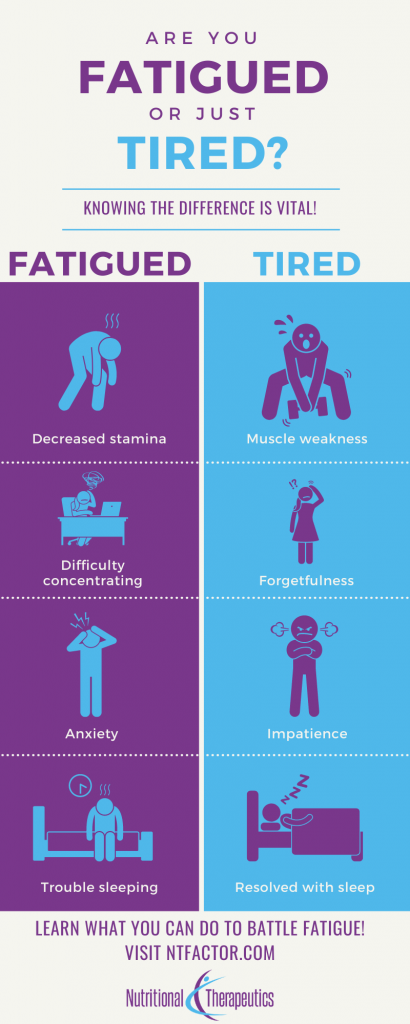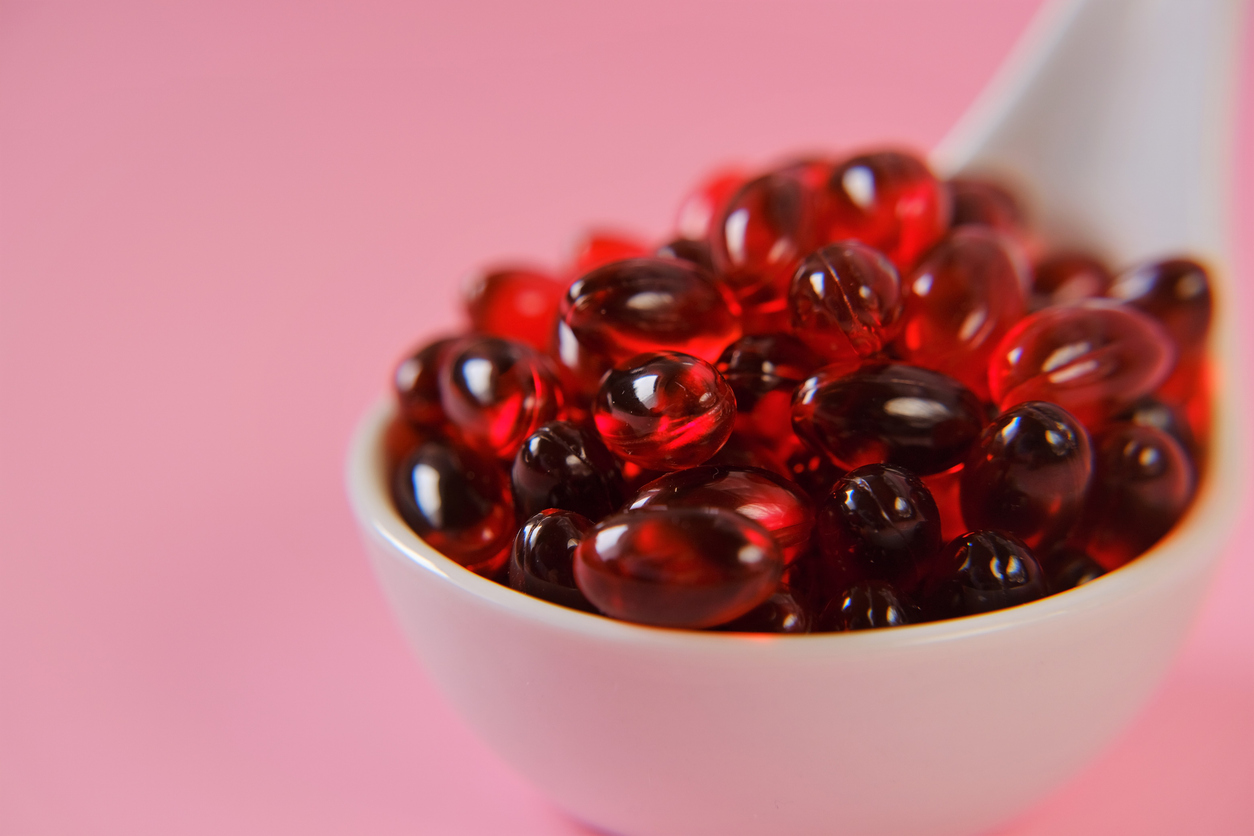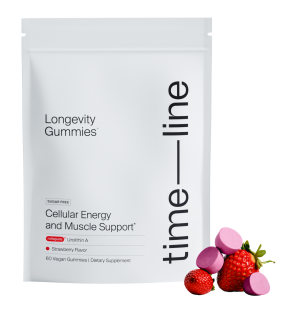Our longtime friends at NTFactor® have written a great article on how to determine whether that pervasive exhaustion you’re feeling these days is due to a simple sleep deficit or true fatigue. For a limited time, they’re also offering 15% off two of their superior energy-restoring products—longtime favorite Patented Energy chewable wafers and their NTFactor® Lipids Powder. Just use code ENERGY15 at checkout!
—Dr. Hoffman
This article contains content from one of our trusted sponsors.
If you feel like you’re more exhausted than usual lately, you’re not alone. The many upheavals of the last year have left many of us rundown and feeling depleted. For some of us, the disruptions to our normal routines have affected our sleep schedules or our ability to get out and stay active. Many of us have been indulging in diets that are less healthy and provide us with less energy. Others have struggled to cope with the many changes and losses and are experiencing newly developed depression or anxiety.
All of these can make you feel more tired—but how do you know if what you’re feeling is simple tiredness or true fatigue? There is a big difference, and it matters! Knowing what you’re experiencing will help you take actions to feel better.
The short answer: If it can be solved by a long nap (or a concerted effort to improve your sleep hygiene), you’re probably just tired. If no amount of rest can bring you relief, you’re probably experiencing fatigue.
We’re all familiar with the effects of too little rest: A brain fog that makes us more forgetful, muscle weakness that makes our daily workout feel like it requires extra effort, impatience that has us snapping at usually tolerable irritations. But despite all that, we still have the energy to get through our everyday tasks and our symptoms can usually be relieved with a good night’s rest.
Fatigue is more pervasive. While all the symptoms above are temporary, if you’re fatigued, you’ll probably find your symptoms linger even when you’re logging eight hours of Zzzz’s per night. Some may seem similar to the effects of tiredness—inability to concentrate and decreased stamina are common with fatigue and can mirror the forgetfulness and weakness mentioned above. However, those experiencing fatigue are also more likely to suffer from troublesome symptoms like anxiety, difficulty sleeping, and an urge to withdraw and be asocial. (After all, who wants to socialize when they’re feeling depleted?) Some even report sensitivity to light. These symptoms can make it hard to get through the day, and when they linger they can have a significant negative impact on your life.
There are a number of physiological reasons we experience fatigue, and in order to rid ourselves of that pervasive feeling of exhaustion, we have to identify the source. Remember, while fatigue itself can feel miserable, it’s often a symptom of other primary health concerns.
According to Dr. Garth Nicolson, our resident science advisor, “If the fatigue is related to a particular medical concern, then alleviating that concern might reduce the fatigue. If it is related to over-exertion, then removing the exertion and taking time to rest can reduce the fatigue. If fatigue is related to damage to cell membranes, mostly mitochondria, then replacing damaged molecules or correcting the defect can reduce the fatigue.”
While tiredness can be resolved by simply giving your body a chance to get a good night’s rest, tackling fatigue requires more nuanced management. Talk to your doctor about how you’re feeling, and they can help you identify any underlying medical causes and provide appropriate treatment options if needed. However, if there’s no clear cause for your fatigue, you may be experiencing fatigue on a cellular level.
Most fatigue, and especially fatigue that’s long-lasting, can be associated with damage to our cell membranes, often caused by oxidative stress or chemical reactions as we age. When membranes—especially mitochondrial membranes—are damaged, it impairs our body’s ability to transmit the chemical signals that power our cells, and cell function is decreased. Optimal mitochondrial function is important because these “powerhouses” within our body are where food is converted to usable energy.
Dr. Nicolson elaborates, “Normally the damaged mitochondrial membrane phospholipids are repaired or replaced, but in some cases (particularly with aging), this often doesn’t occur fast or often enough to repair and return mitochondria to their full capabilities of producing high-energy molecules.”
One particularly sensitive part of the mitochondrial membrane is its phospholipid matrix, which can be damaged by exposure to free-radical oxidants—something we experience as part of our everyday lives, generated by everything from exercise and infection to simple aging.
So, what can we do?
We can give our cells a boost by helping to replace and fortify that sensitive lipid matrix. While we glean a certain amount of phospholipids from our diet (and even supplements like fish oil), they’re not always the exact mix our body needs and can often suffer damage during the digestion process before our bodies are able to put them to use.
“Although natural food sources are good, they can’t supply enough of these critical molecules, even if you consumed industrial quantities of certain foods,” Dr. Nicolson explains. “NTFactor® Lipids** are protected from natural oxidative damage that occurs all the time, and the mix of membrane phospholipids carefully matches the needed replacement molecules for mitochondria.”
NTFactor® Lipids provides your body with a proprietary lipid blend** that allows it to rebuild and repair those vital membranes and get those chemical signals hopping at the quick and efficient rate that helps to fuel everything from your morning workout to chasing after your kids in the afternoon.
When a good night’s sleep just isn’t enough, treat your cells to the restorative powers of NTFactor®.
**For a limited time, get 15% off two NTFactor® favorites—Patented Energy chewable wafers and NTFactor® Lipids Powder. Just use code ENERGY15 at checkout!

Allison Fingleton is Senior Editor for Nutritional Therapeutics, Inc. This article originally appeared on Nutritional Therapeutics’ Health Blog, and contains links to products from one of our trusted sponsors.







